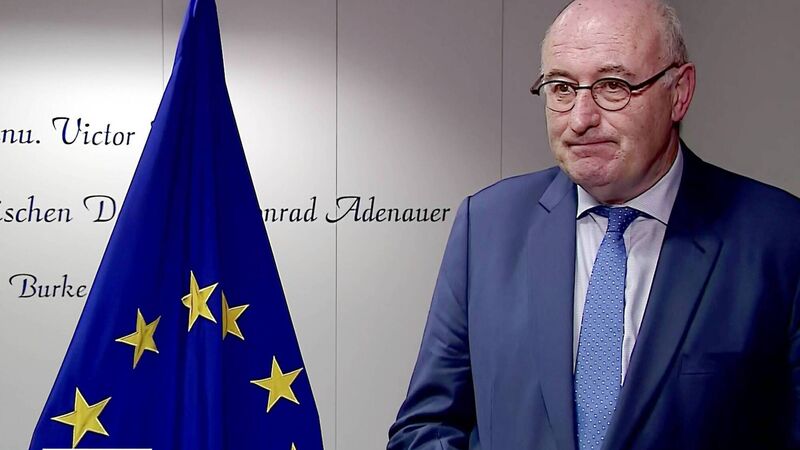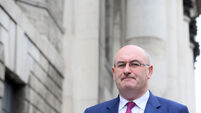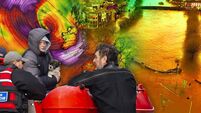Daniel McConnell: In his own words, Phil Hogan was the author of his own downfall

Phil Hogan announcing his resignation as European commissioner live on RTÉ News on August 26, 2020. A day earlier, in an interview with RTÉ’s Tony Connolly, he took full responsibility for his actions. File picture: RTÉ
IN the weeks since the Golfgate criminal trial was thrown out by Judge Mary Fahy, there has been an extraordinary amount of revisionism.
We have seen Taoiseach Micheál Martin pressed about his treatment of Dara Calleary, his then agriculture minister, who resigned amid public outrage over the Oireachtas Golf Society function, held in Clifden in August 2020, just days after the Government had announced strict public health measures for social gatherings.















